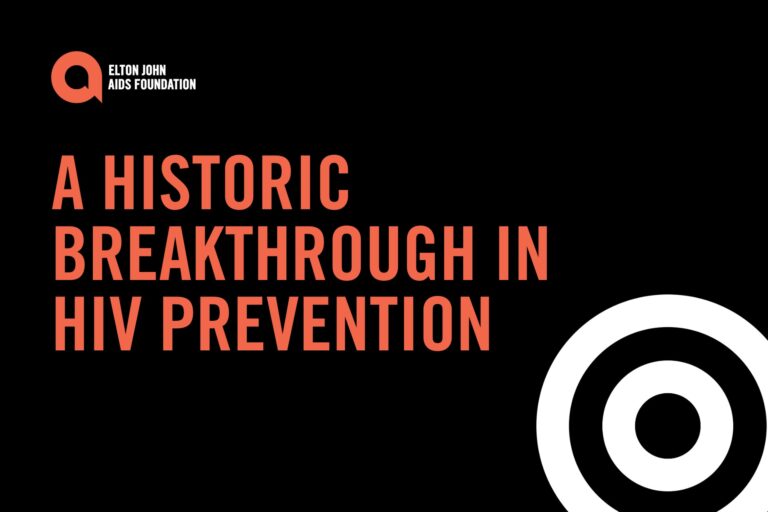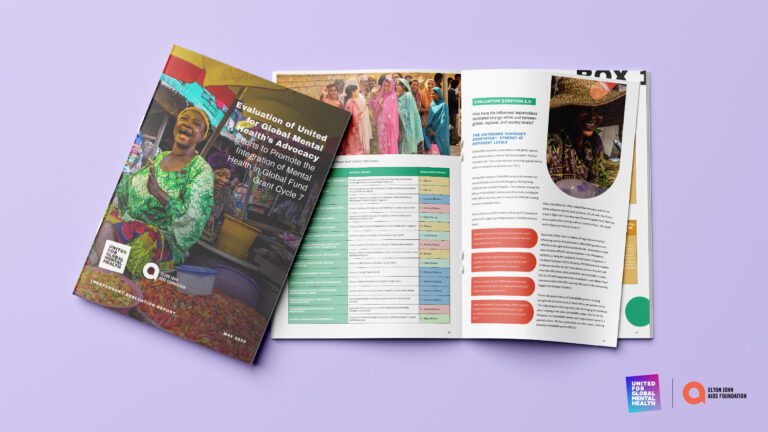The Elton John AIDS Foundation, together with Fast-Track Cities, Gilead Sciences and ViiV Healthcare, is investing over £1 million in two innovation pilots designed to improve access to pre-exposure prophylaxis (PrEP) – a proven, safe, and effective medication that prevents HIV infection. The pilots will focus on reaching groups that have, to date, been underserved by existing PrEP models, including women and Black African communities, with the aim of bringing the UK closer to ending new cases of HIV by 2030.
“The Foundation has proven experience of designing and funding successful pilots that go on to achieve impact at scale. Our HIV Social Impact Bond, which proved that opt-out testing was a highly effective way of finding people living with HIV, started out as a one-week pilot in one hospital. Now, thanks to Government funding, the scheme is being rolled out to 89 emergency departments across England and has to date found 1,000 new diagnoses of HIV,” said Anne Aslett, CEO of the Elton John AIDS Foundation.
“At a time when public health budgets are under pressure, we believe these pilots will show that investing in prevention is not only lifesaving but also cost-effective, reducing the long-term burden on the NHS by averting new HIV infections before they occur. If the UK is to meet its goal of ending new HIV cases by 2030, it is essential that the new HIV Action Plan, set to be published by the UK government this summer, prioritizes PrEP access, along with HIV testing and strengthening high-quality HIV care.”
The HIV prevention gap in England
PrEP can reduce the risk of acquiring HIV from sex by around 99% when taken as prescribed. It was available in England through the PrEP Impact Trial from 2017 until 2020 and since then, it has been available for free from NHS sexual health clinics1.
However, multiple barriers continue to prevent people from accessing this life-changing medication. More than two-thirds of people seeking access to PrEP in the UK have been unable to get it, and more than half of those looking for clinic appointments have been waiting more than 12 weeks to be seen2.
Access to PrEP is also far from equal. In 2023, women made up 30% of new HIV diagnoses, yet only 3.1% of PrEP users in England are women3. Many people don’t know that PrEP exists, don’t consider themselves at risk, or aren’t aware that NHS services like PrEP are free. Others may not feel comfortable going to a clinic or may face additional barriers, such as insecure immigration status or past negative experiences with healthcare.
These gaps in access are putting lives at risk and they must be addressed.
Piloting new ways to make PrEP more accessible in England
New HIV diagnoses in England rose by 15% between 2022 and 2023. To meet the UK’s goal of ended new cases by 2030, it is crucial to address inequalities in PrEP access and increase its use. Over 18 months, the two PrEP innovation pilots that we are launching will aim to increase awareness and uptake of PrEP amongst communities at high risk of acquiring HIV through fair, effective, and cost-effective ways. They will be championed by local authorities and integrated into the existing NHS architecture, facilitating the development of a sustainable blueprint for PrEP services that is scalable and transferable across the UK.
Expanding access to PrEP in North East London
One pilot will focus on introducing a digital PrEP offering paired with targeted grassroots engagement for residents of North East London’s Local Authorities (Barking and Dagenham, City of London, Hackney, Havering, Newham, Redbridge, Tower Hamlets, and Waltham Forest), with the aim of relieving pressure on sexual health clinics and attracting new users, reaching populations that have so far been neglected.
The North East London pilot, ExPAND-NEL, aims to provide PrEP to over 3,000 additional residents over 18 months, representing a 60% increase in current PrEP coverage across all seven local authorities through a digital platform paired with community engagement and delivery in non-specialist healthcare settings.
North East London’s population of two million people includes a high proportion of groups at increased risk of HIV who experience poor PrEP access – notably Black African and Black Caribbean heterosexuals, migrants from at-risk countries, and young gay, bisexual and other men who have sex with men (GBMSM). Although HIV incidence declined by about 60% between 2018 and 2021 in the UK, North East London incidence rates remain among the highest in the country with the number of new diagnoses among people first diagnosed in the UK increasing from 193 in 2022 to 217 in 2023 (Office for Health Improvement and Disparities. Public health profiles. Accessed 29 May 2025).
Integrating PrEP into existing services
The second pilot will run across three sites – Brighton and Hove, Liverpool, and West Sussex – creating new pathways for at-risk communities such as Black African women, and refugee and migrant communities, who may benefit from alternative approaches.
The pilot will focus on incorporating PrEP into existing NHS services – such as women’s health hubs, antenatal appointments, cervical screenings and community organizations supporting vulnerable people – to reach underserved communities where and when they are already engaging with the health system.
Ultimately, the goal is to address inequities, raise awareness and reach people who might not typically access sexual health clinics.






